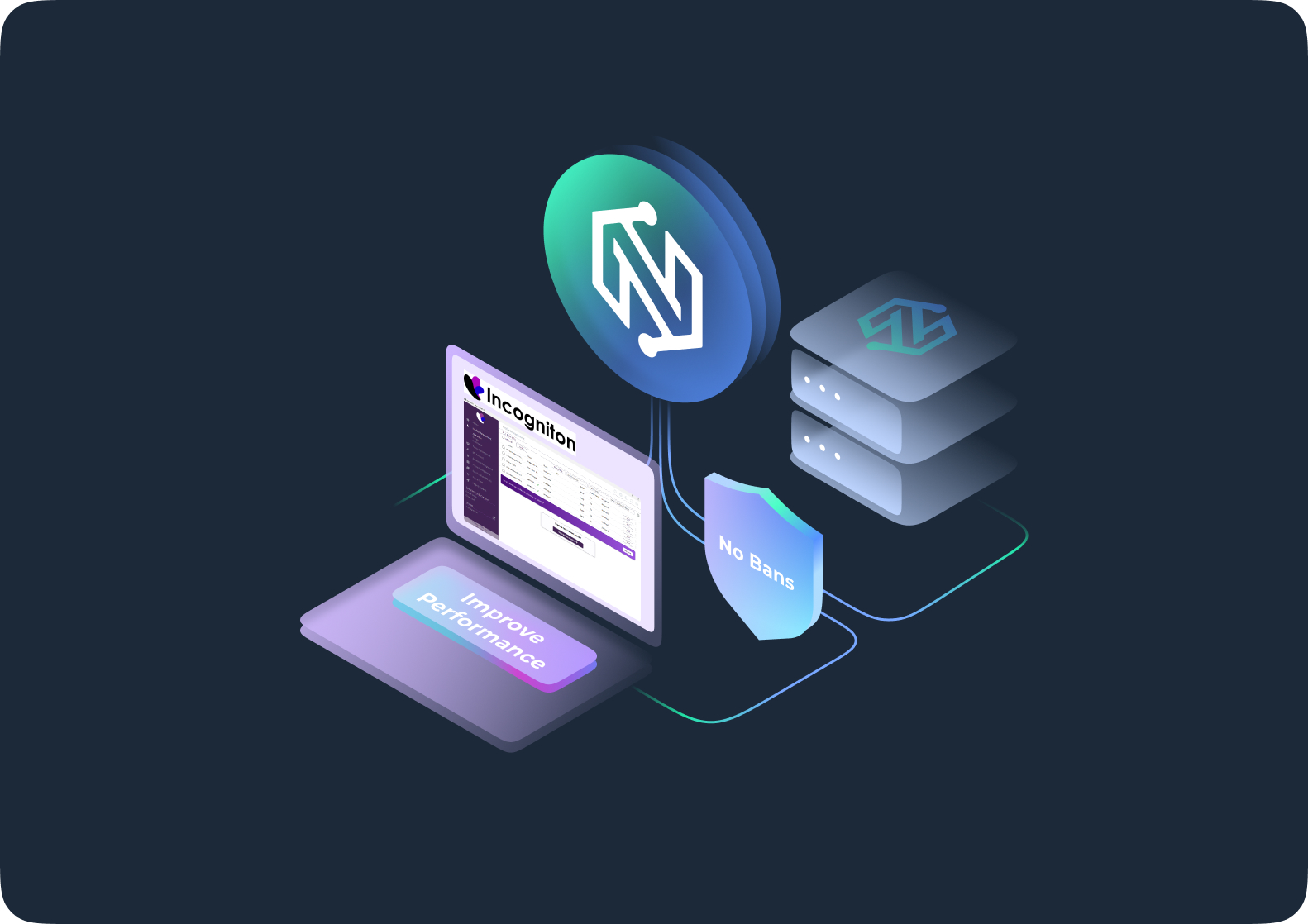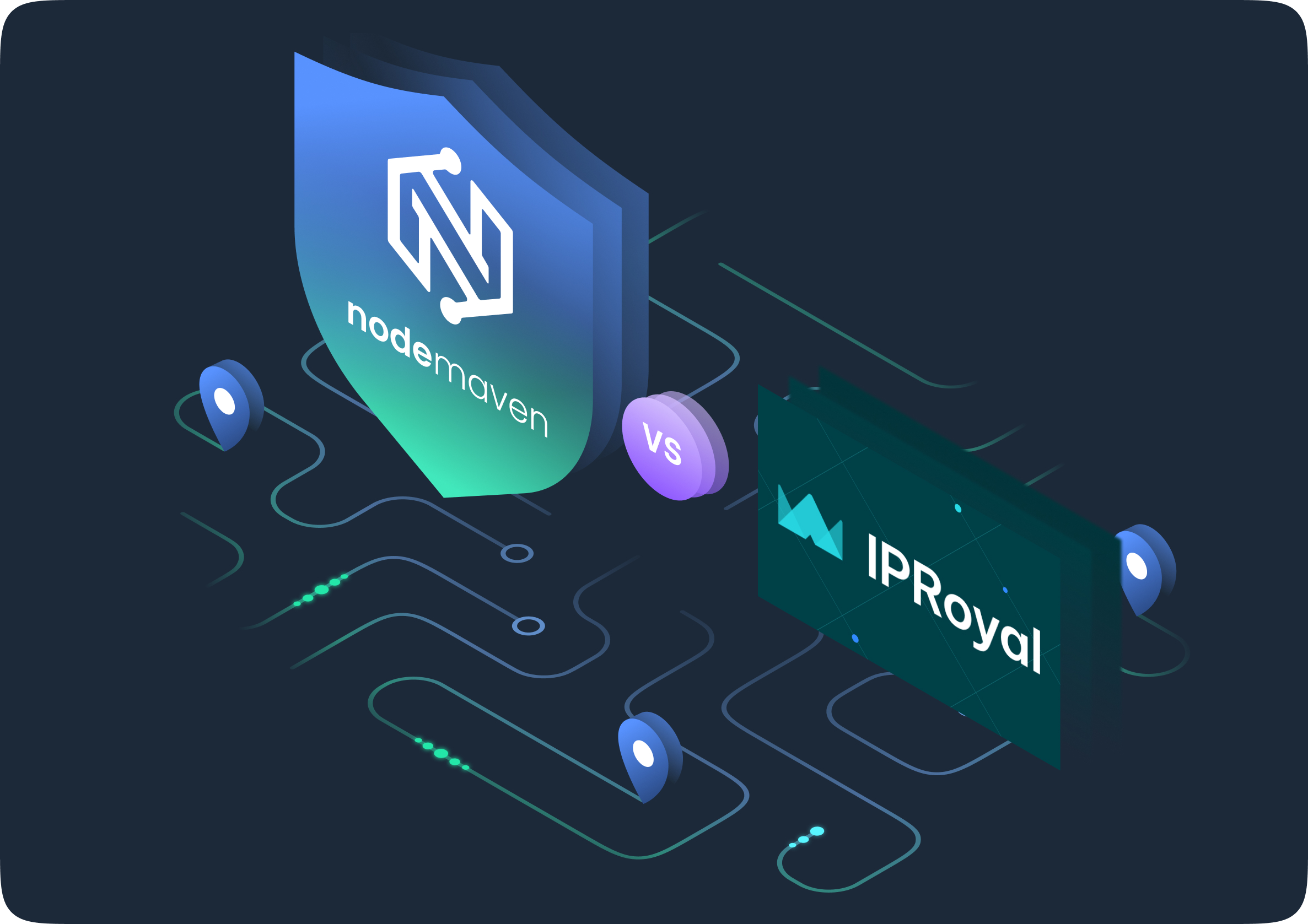In the vast world of the internet, cyberattacks are becoming more sophisticated, with the average cost of a data breach being $4.88 million in 2024, the highest average on record.
IP blocking often goes unnoticed until it happens to you. Imagine being locked out of a website you’ve used for years or your business struggling to access critical data.
That’s the power of IP blocking. It’s both a digital gatekeeper and a major obstacle for users and businesses alike.
With cyber threats on the rise and content restrictions tightening globally, IP blocks have become a critical tool for website security, compliance, and traffic management. But what is IP blocking, and why does it matter so much? Let’s dive in.
Understanding the Basics of IP Blocking
At its core, IP blocks are the process of denying access to specific IP addresses attempting to connect to a server or website.
Every device connected to the internet has an IP address – a unique identifier that allows it to communicate with websites, applications, and services.
Websites use IP blocking to manage traffic, enforce geo-restrictions, or protect themselves from malicious activity. Residential proxies, which utilize IP addresses tied to real devices and locations, are often employed to bypass such restrictions effectively.
Think of it as a bouncer at a club: if your name (or IP address) isn’t on the list, you’re not getting in.
Common Reasons for IP Blocking
IP blocking isn’t just about keeping cybercriminals out. It serves a variety of purposes, from enhancing security to managing website performance.
For example, websites often block traffic from certain regions or IP ranges to prevent unauthorized access or comply with licensing agreements. This is where static residential proxies and rotating residential proxies come into play.
Static residential proxies are ideal for maintaining a consistent identity online, making them perfect for activities like account management.
On the other hand, rotating residential proxies continuously change the IP address, making them invaluable for tasks like web scraping or bypassing geo-restrictions, where anonymity and adaptability are crucial.
By understanding the reasons behind IP blocking, businesses and users can deploy these proxies strategically to overcome access challenges.
Preventing Cybersecurity Threats
By blocking suspicious IPs, businesses can protect sensitive data and reduce the risk of attacks like DDoS (Distributed Denial of Service) or credential stuffing.
- DDoS attacks: Platforms often block IPs to prevent Distributed Denial of Service (DDoS) attacks, which overwhelm servers with traffic.
- Fraud prevention: Suspicious activities like account takeovers or brute-force login attempts can trigger automatic IP bans.
Example: Picture a retail website flooded with bot traffic during Black Friday sales, crashing the site. By blocking malicious IPs, the retailer makes sure to have smooth operations and satisfied customers.
Managing Website Traffic
Websites often block IPs to manage bandwidth and server resources. Too much traffic from a single source can overwhelm a server, slowing down or crashing the site for legitimate users.
- Mitigating bots: Many platforms employ IP blocking to curb bots that scrape data, distort traffic metrics, or flood forums with spam.
- Load balancing: High traffic from a single IP may strain server resources, leading to temporary blocking.
Example: A streaming platform may block users sharing accounts across multiple devices, so that fair use policies are upheld.
Geo-Restrictions and Compliance
Whether it’s Netflix offering different content libraries by region or e-commerce platforms complying with international regulations, geo-restrictions rely on IP blocking to enforce location-based access.
- Regional licensing: Streaming services like Netflix or Hulu may block IPs outside licensed regions to comply with content agreements.
- Censorship: Governments in some countries enforce IP blocks to control access to specific websites or information.
Example: A U.S.-based user attempting to stream BBC iPlayer content will encounter a roadblock unless they use a proxy or VPN to mask their IP.
Types of IP Blocking
IP blocking can vary in scope and application, depending on the purpose and target. Let’s break it down.
Static IP Blocking
This targets devices with a fixed IP address. Once the IP is blocked, the user cannot access the website unless the block is removed.
- Example: An individual or organization consistently accessing a website using the same IP can be permanently blocked if suspicious activity is detected.
- Usage: This method is effective for long-term bans or addressing repeat offenders.
Dynamic IP Blocking
Dynamic IPs change periodically, making this method trickier. However, websites may block entire ranges to prevent repeat offenders from bypassing restrictions.
- Example: ISPs often assign dynamic IPs, which refresh during reconnections. Blocking a single IP may inadvertently block a different user in the future.
- Usage: Common for temporary bans, granting less disruption for legitimate users.
Range-Based IP Blocking
Instead of targeting specific IPs, websites block entire ranges – often used for known malicious regions or subnets.
- Example: If a server identifies malicious activity from one IP within a range, the entire block of IPs might be restricted.
- Usage: An e-commerce site might block IP ranges from regions with high fraud rates to reduce chargeback risks.
Temporary vs. Permanent IP Blocking
Some blocks are temporary, addressing short-term issues like suspicious activity. Others are permanent, banning users or regions for recurring violations.
- Temporary: A short-term solution to deter spam or manage sudden surges in traffic.
- Permanent: Reserved for serious or repeated violations, keeping lasting protection.
How IP Blocking Impacts Businesses and Users
While IP blocking is a vital security tool, its impact isn’t always positive. Here’s how it can affect different stakeholders:
- Restricted access: Individuals or businesses may be blocked from accessing critical tools, websites, or services due to false positives or overly aggressive filters.
- Operational disruptions: Teams relying on certain platforms for marketing, research, or collaboration may face setbacks if blocked unexpectedly.
- Financial loss: For e-commerce businesses or SaaS platforms, blocking potential customers’ IPs can result in revenue loss.
- Reputation management: Overuse of IP blocking can damage customer trust and user experience.
It’s crucial to strike a balance between security and accessibility to avoid unnecessary friction.
Overcome IP Blocking Challenges with NodeMaven’s Residential Proxies
NodeMaven offers advanced solutions to mitigate the challenges of IP blocking. By leveraging premium quality residential proxies, users can bypass restrictions while maintaining legitimacy.
Here’s how NodeMaven stands out:
- Vast residential proxy network: Gain access to a pool of millions of rotating residential proxies, giving high anonymity and avoiding detection systems.
- Geo-targeting capabilities: Target specific locations to mimic legitimate traffic and comply with regional requirements.
- Rotating residential proxies for versatility: Automatically rotate IPs to avoid triggering security systems while maintaining session consistency.
- Static residential proxies for reliability: For tasks requiring a stable IP, NodeMaven offers static residential proxies to make sure you get uninterrupted access.
- Scalable plans for every need: Whether you’re managing a few accounts or running large-scale operations, NodeMaven’s flexible plans cater to all.
- 24/7 expert support: From setup to troubleshooting, NodeMaven’s team is always ready to assist with your proxy needs.
Sign up today and experience the difference!


